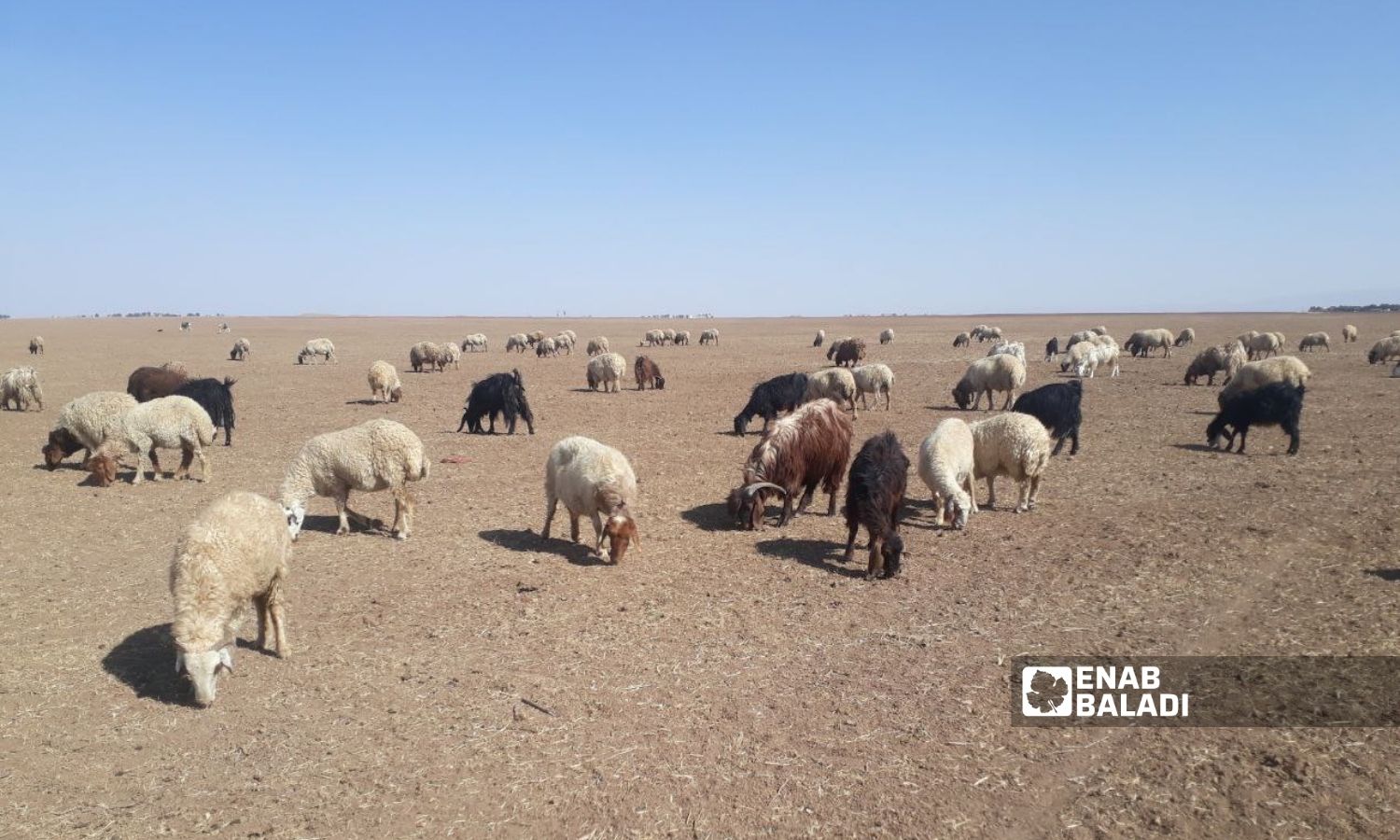



Al-Hasakah – Majd al-Salem
Livestock breeders in al-Hasakah governorate suffer from the high cost of veterinary medicines and the weak control over them. In September, the vaccination campaign against epidemic diseases that threaten livestock, the most important of which is the fast-spreading sheep pox disease, begins.
Sobeih al-Mustafa, 50, who keeps 60 sheep in the countryside of Jazaa district of al-Yarubiyah region, told Enab Baladi that veterinary treatments are “ultra-expensive,” explaining that he is obliged to adhere to them and to vaccinate and immune his sheep against dangerous and infectious diseases such as sheep pox.
Al-Mustafa refrains from pollinating sheep against less serious diseases such as scabies, lice, and ticks, as this can render sheep breeding an economic loss for him, he says.
According to said breeder, inoculating sheep against sheep pox does not mean that they are 100% immunized because some veterinary medicines are ineffective and expired due to the lack of control by the competent authorities over the quality of vaccines available on the market.
Veterinarian Mustafa al-Alou (44), from the southern Qamishli countryside, confirmed to Enab Baladi that there are many difficulties with the vaccines and veterinary medicines available in the region, particularly the sheep pox vaccine.
Al-Alou said sheep breeders should not buy any vaccine if they are unsure of its source and country of origin and that it is best to take the necessary vaccines from official authorities such as animal production directorates.
The veterinarian considered that inoculating sheep against certain diseases was very necessary, most notably sheep pox, fever, and Pasteurella.
According to the veterinarian, sheep pox is very dangerous, a contagious viral disease transmitted directly or indirectly by flying spray from the nose of an infected sheep. Mortality may be 100% when a young lamb is infected. When older sheep are infected, 50% of the herd may “perish.”
Regarding the symptoms of the disease, the veterinarian said they typically include lethargy and high temperatures of 42 degrees Celsius in infected sheep, with subcutaneous nodes appearing especially in wool-free areas such as the udders, around the eyes, and the inner thigh area.
On 7 September, the Autonomous Administration of North and East Syria (AANES) announced that its Animal Wealth Directorate had started distributing the sheep pox vaccine to agricultural committees, which in turn would provide it to breeders free of charge.
However, according to several breeders interviewed by Enab Baladi, the vaccines will be distributed only to the flocks registered with AANES, not including flocks raised by residents in regime-held areas of al-Hasakah.
Also, the quantities available are insufficient and disproportionate to the existing number of flocks, forcing some breeders to purchase additional quantities of vaccines through veterinary pharmacies to cover and immunize their entire flocks.
The veterinarian confirmed that the number of vaccines distributed so far is sufficient for only about 20% of the existing flocks.
The number of sheep in Qamishli and its countryside is about 1 million, according to the statement of the Joint Chairman of the AANES-affiliated Qamishli Livestock Directorate, Mohammad Kazem, to Buyer website at the beginning of this year.
According to several breeders interviewed by Enab Baladi in the area, the national (Syrian) veterinary medicines are not available. Favoritism and bribery also play a role in providing medicines only to certain breeders. Some breeders, therefore, purchase foreign Chinese, Turkish, or Arab medicines (such as the Jordanian one), as the price of one box of the sheep pox vaccine costs about 10 USD.
if you think the article contain wrong information or you have additional details Send Correction